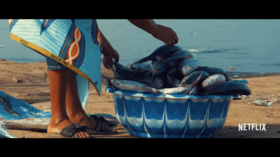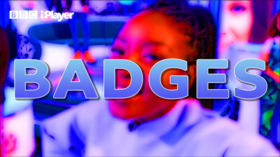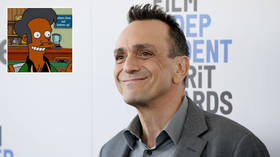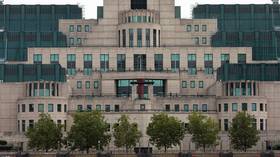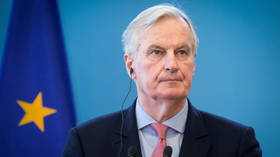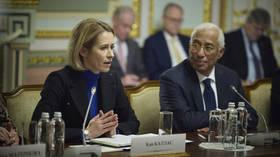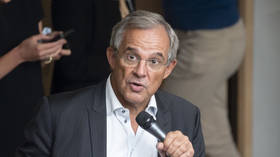The battle over the next global emergency, the environment, will make Covid-19 state authoritarianism look like a walk in the park
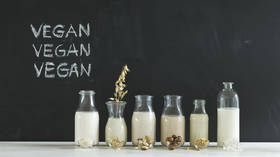
It’s easy to laugh when middle-class greenies write about their eco-anxiety, under headlines like ‘Can you drink milk and stay ethical?’, but there’s a deadly serious side to this that threatens to curtail our freedoms.
The world of the eco-warrior is a gloomy one indeed. Just as the rest of us are starting to enjoy the first loosening of government-imposed lockdown and pondering the post-Covid-19 world, they, while drinking their barista-quality oat milk lattes, are preoccupied with highly moral dilemmas most of us don’t have the time or money to think about.
What follows is not made up, but is a shortened version of Guardian columnist Emma Beddington’s moral dilemmas facing the post-Covid-19 world.
While anxious to minimise her part in transforming the Earth “into a flaming wasteland,” she has a major dilemma with milk, well, multiple problems. Why? Because milk is apparently, “bad news for the planet: three times worse in greenhouse emission terms than any plant milk.” (We’ll come back to the moronic concept of ‘plant milk’ below). But her dilemma is that while knowing this for “ages” she has pretended it is not. And why? “Because tea is horrible with oat milk.” Who would have thought? (We’ll come back to this equally moronic concept below too).
According to Beddington, the horror of this complex dilemma is earth-shattering, or scorching, depending on where you place your carbon footprint. Her solution is to seek out what she terms “the least bad dairy”: she gets her milk from “cows fed on seaweed, which reduces bovine belching.” Apparently, research has recently found this can cut methane emissions by up to 82%.
But before you can breathe a sigh of relief (while perhaps pondering whether feeding cows seaweed does not constitute abuse and animal cruelty), it gets even worse. Her ‘good’ dairy comes in plastic bottles, not glass ones, which makes it bad. Because her household finishes two pints of seaweed milk precisely six days after the weekly delivery, ordering another two-pint bottle, would mean “most of it would end up down the sink” – obviously a no-no for sustainability. So, her instinct is to hold out. But this results in an even greater moral dilemma because it means imposing her “eco-guilt” on her younger son, who, bless him, “has the smallest carbon footprint of any of us, and just wants milk on his cereal.” The result? She ends up buying a pint of “Bad Milk from the corner shop.” (The horror!).
At the very least, this suggests her son has something she lacks: namely, the ability to recognise that Bad Milk tastes good while Good Milk is, in her own words, “horrible.”
But who would have thought that living ethically was so complex and difficult? Milk is just the tip of the rapidly melting iceberg. Every consumer decision is laden with moral dilemmas: how to shop without contributing to “flat-pack landfill waste.” What’s the point in recycling “like a demon, sorting, flattening, rinsing and parsing the council’s opaque and inadequate recycling policy” when no-one “will take plastic takeaway boxes” (an admission that Beddington and her fellow eco-warriors have spent lockdown dealing with their eco-dilemmas while eating takeaway food delivered by people who, in all likelihood, are relying on food banks for their survival, not struggling with the pros and cons of seaweed-fed bovines).
But for the virtual signalling eco-middle class every choice is bad and carries a heavy burden. The weight of having to balance “one harm against another” is causing them mental health problems. So, what is her solution? Well, she says, “as in so much of life…I just want someone authoritative to tell me what to do.”
This is where eco-anxiety ceases to be a source of comedic brilliance and where virtue signalling becomes a serious political issue.
What Beddington and the Guardian are advocating, in reality, is that we should all succumb to the dictatorship of experts – but only the experts that accept misanthropic eco-anxiety, not those who might question it.
The concepts they use, like ‘plant milk’ already indicate the type of conformity they expect and demand. The Oxford English Dictionary defines ‘milk’ as “a whitish fluid, rich in fat and protein, secreted by the mammary glands of female mammals (including humans) for the nourishment of their young, and taken from cows, sheep, etc., as an article of the human diet.” As such, it reflects human ingenuity and how mankind has transformed nature to meet human ends. This is precisely what nonsensical misnomers like ‘oat milk’ seek to undermine.
The assault on language is just the thin edge of the wedge. ‘Tell me what to do’ is the political rallying cry of the middle class. They have really loved Covid-19 and the lockdown that was imposed by the state on the word of politically unaccountable experts who apparently knew what’s best for the rest of us. And they’re expert at that.
The moral complexity of eco-anxiety, expressed so comically by Beddington, should not lull us into a false sense of security. As bonkers as it is, it serves to strengthen the idea of the need for expert diktat.
This has been the message of the high priest of environmentalism, Greta Thunberg, throughout the Covid-19 pandemic. She has not tired from drawing out the lessons that acting on the advice of scientists “should be applied to the climate crisis.”
As we move haltingly towards freedom in the post-Covid-19 era, eco-anxiety is set to fill the authoritarian expert gap that will follow. The battle over the next global emergency – the environment – will make the Covid-19 battle for debate, contestation and anti-state authoritarianism look like a walk in the park.
But it is not all bleak. As one reader, ‘Donercard’, humorously referring to the ‘Ian Rush Accrington Stanley’ milk advert by the Milk Marketing Board in the 1980s, puts it: “You (Beddington) can drink milk and be ethical but you will never play for Accrington Stanley.”
Exactly!
The statements, views and opinions expressed in this column are solely those of the author and do not necessarily represent those of RT.
